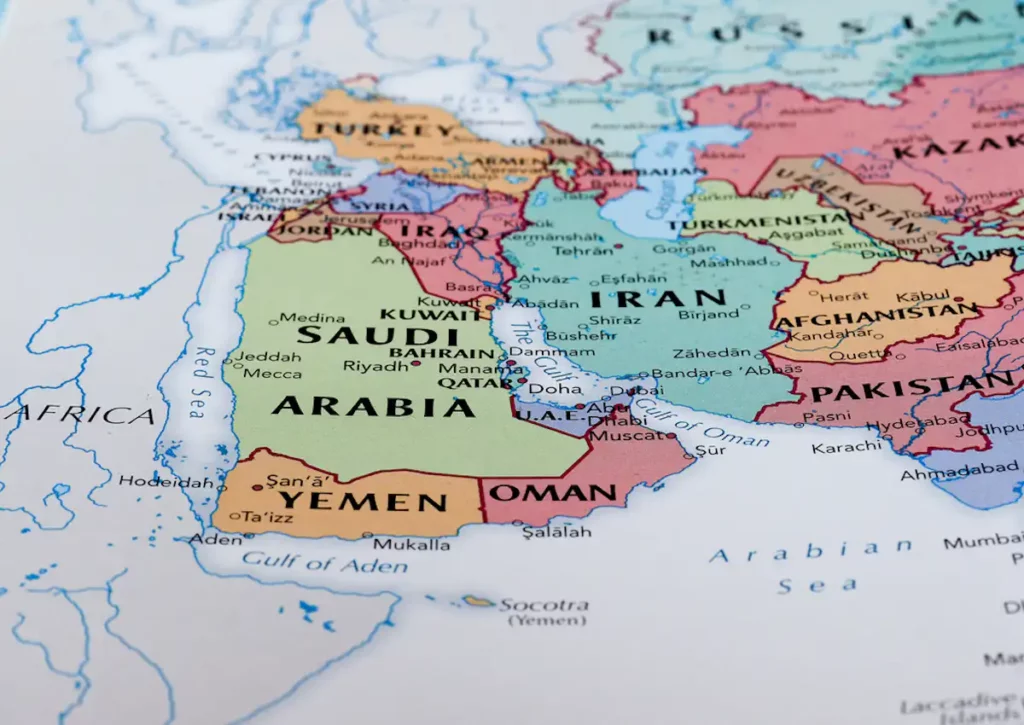Middle Eastern heavyweights Iran and Saudi Arabia announced on Friday that, following talks in China, they will restore diplomatic relations broken off in 2016 and reopen their respective embassies within two months.
“Following talks, the Islamic Republic of Iran and the Kingdom of Saudi Arabia have agreed to resume diplomatic relations and reopen embassies and representations within a maximum of two months,” Iran’s IRNA news agency reported, citing a joint statement issued by the two countries’ state media.
Sunni Saudi Arabia and Shiite Iran severed ties more than seven years ago after protesters in the Islamic republic attacked Saudi diplomatic missions following Riyadh’s execution of a prominent Shiite cleric.
Other Gulf countries including the United Arab Emirates, Kuwait and Bahrain had subsequently cut diplomatic ties with Tehran in support of Riyadh.
Iranian Supreme National Security Council Secretary Ali Shamkhani was in Beijing since Monday for "intensive negotiations" with his Saudi counterpart in China aimed at resolving the differences between Tehran and Riyadh, Irna reported.
'Great opportunities for both countries'
The foreign ministers of the two countries will “implement this decision and make the necessary arrangements for the exchange of ambassadors,” the statement added, without elaborating.
Iranian diplomatic chief Hossein Amir-Abdollahian hailed on Twitter the normalisation of relations between his country and Saudi Arabia.
“The return to normal relations between Tehran and Riyadh offers great opportunities for both countries, the region and the Muslim world,” he tweeted, adding that his ministry would “actively launch other regional initiatives,” without giving details.
'New page'
His Saudi counterpart, Prince Faisal bin Farhane, said the deal reflected the kingdom’s tendency to favour “political solutions and dialogue,” an approach it wants to see become the norm in the region.
The White House also “welcomed” Friday’s announcement but “it remains to be seen whether Iran will fulfil its obligations,” a spokesman said.
Iraq welcomed the “new page” in the history of diplomatic relations between Tehran and Riyadh, which support rival parties in several conflicts in the region, including Yemen.
Nearly two years of efforts by neighbouring States
Starting in April 2021, Iraq hosted a series of meetings between security officials from the two rival powers to bring the two neighbours closer together.
In their joint statement, Iran and Saudi Arabia thanked Baghdad and Oman for “hosting talks between the two sides in 2021 and 2022.”
Iran has very close ties with Iraq, where the parliament is dominated by pro-Iranian parties and the government is drawn mainly from the Shiite majority.
Other Arab countries such as the United Arab Emirates, Qatar, Jordan and Lebanon also welcomed the announcement.
Decision to resume ties lauded by Hezbollah
Another Tehran ally, the Lebanese Shiite movement Hezbollah, called Friday’s announcement a “good development.” Its leader, Hassan Nasrallah, said in a speech that the resumption of relations could help in resolving crises in Lebanon, Syria, Yemen and the region.
In their statement, Iran and Saudi Arabia also thanked Beijing “for hosting and supporting the talks in China.”
Beijing signed a wide-ranging 25-year strategic agreement with Tehran in 2021 in areas as diverse as energy, security, infrastructure and communications.
“The three countries (Iran, Saudi Arabia, China) declare their firm commitment to make every effort to strengthen regional and international peace and security,” Friday's joint statement said.
"Total failure" of Israeli foreign policy
In mid-February, Iran's Ebrahim Raissi made a three-day state visit to China, the first by an Iranian president to the country in more than 20 years.
In recent months, the UAE and Kuwait had resumed diplomatic relations with Iran.
In Israel, on the other hand, a country that is a sworn enemy of Iran and Hezbollah, opposition leader Yair Lapid deemed “the agreement between Saudi Arabia and Iran a total and dangerous failure of the Israeli government’s foreign policy.”

